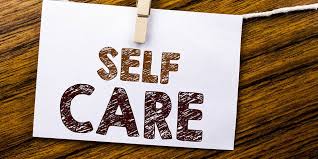The Importance of Following the Nudge
Have you ever had a fleeting thought or gut feeling urging you to take a specific action? Maybe it’s the whisper of “reach out to an old friend,” or a sudden spark to try something new, like starting a hobby or applying for a job that excites you. These subtle inner signals, often called “nudges,” are more significant than they might seem.
In a world full of noise, we often dismiss these intuitive prompts as random or insignificant. But what if those nudges are a way of guiding you toward growth, connection, or healing? In this blog, we’ll explore why paying attention to these nudges can enrich your life and how following them can lead to personal transformation.
What Is a Nudge?
A nudge is an intuitive feeling, thought, or idea that seems to come out of nowhere. It’s often gentle and easy to ignore, but it carries a sense of urgency or importance. Nudges can arise from your subconscious mind, drawing on your past experiences, values, and goals. Others might frame them as divine guidance or spiritual insight.
Regardless of their source, nudges often signal an opportunity. Whether it’s a chance to mend a relationship, pursue a dream, or step out of your comfort zone, these signals are worth paying attention to.
Why Do We Ignore Nudges?
Ignoring a nudge is easy, especially in a fast-paced world where logical decisions seem to take precedence over intuitive ones. Here are a few reasons we brush them aside:
1. Fear of the Unknown: Nudges often lead us into uncharted territory, which can feel risky or uncomfortable.
2. Self-Doubt: We question if the feeling is valid or if we’re just “making it up.”
3. Busyness: Life’s daily demands can drown out quieter signals, leaving little room for introspection.
4. Overthinking: Sometimes, we talk ourselves out of acting because we overanalyze the situation.
The Power of Following the Nudge
When you choose to listen to and act on a nudge, it can open doors you didn’t even know existed. Here’s why it’s worth taking that leap:
1. Unlocking Opportunities
Nudges often guide you toward opportunities that align with your deeper desires or purpose. For instance, saying “yes” to a nudge to join a community group might lead to meaningful friendships or professional connections.
2. Strengthening Intuition
Each time you follow a nudge, you strengthen your ability to trust your inner wisdom. This self-trust builds confidence and helps you navigate life with greater clarity.
3. Fostering Personal Growth
Many nudges challenge you to step out of your comfort zone. While this can be scary, it’s also where growth happens. By embracing the unfamiliar, you expand your horizons and build resilience.
4. Creating Alignment
Following your nudges often leads to alignment with your true self. You might discover passions, talents, or values that were hidden under the surface, helping you live more authentically.
How to Recognize and Act on Nudges
If you’re wondering how to tune into your nudges and act on them, here are some tips:
1. Pause and Reflect: Take a moment to listen to your thoughts and feelings. Journaling or meditating can help you identify subtle signals.
2. Check for Alignment: Does the nudge align with your values or long-term goals? If yes, it’s worth considering.
3. Start Small: Not every nudge requires a grand gesture. Sometimes, small actions can lead to profound change.
4. Release Judgment: Trust that your nudge has value, even if it doesn’t make sense right away.
5. Embrace the Outcome: Whether the nudge leads to success or a lesson learned, every step moves you forward.
Final Thoughts
Nudges are like quiet invitations from within, encouraging you to explore the possibilities life has to offer. By paying attention to these subtle signals, you can uncover opportunities for growth, connection, and joy that you might otherwise overlook.
So the next time you feel a nudge, pause and consider: What might be waiting on the other side of this action? Following it could lead to the breakthrough you didn’t know you needed.
Are you ready to trust your intuition and follow the nudge? Let’s take the first step together.





